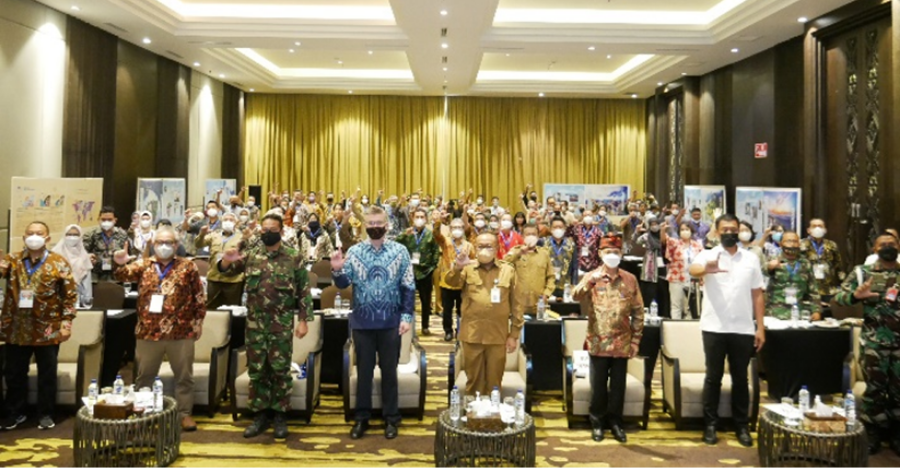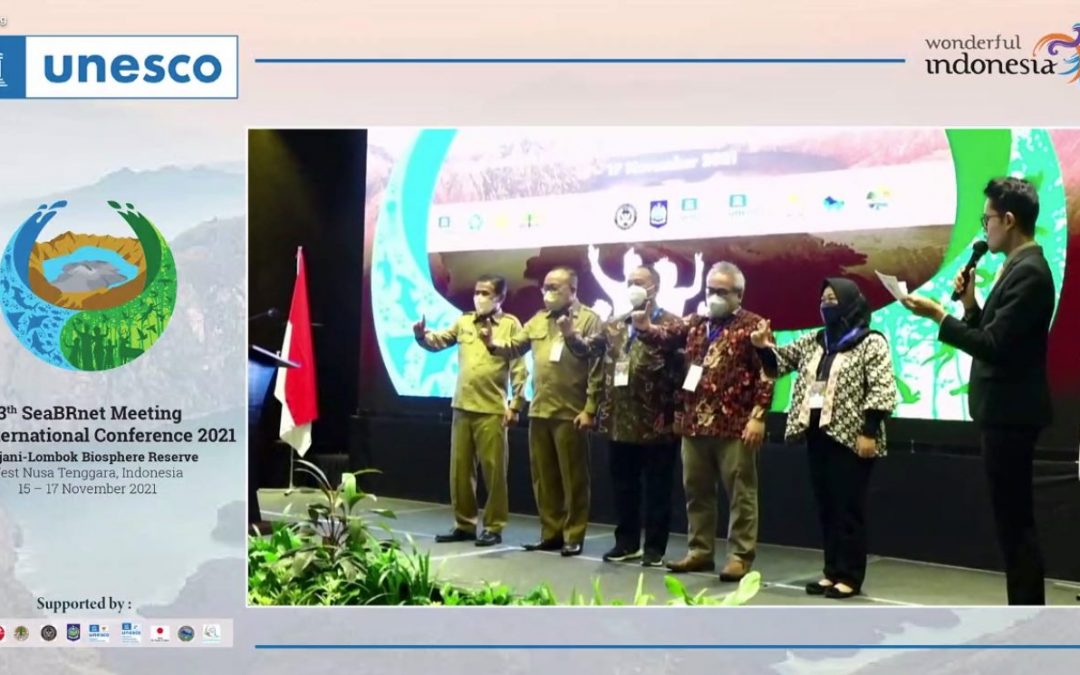Southeast Asian Biosphere Reserves Network Gather in Rinjani-Lombok, Indonesia
“The Southeast Asian MAB Community continues to thrive, to grow, to expand and to reach new heights of achievement – despite the pandemic,” said Hans Dencker Thulstrup, the Secretary of SeaBRnet, during the opening of the 13th meeting of the Southeast Asian Biosphere Reserves Network (SeaBRnet) held in Lombok, West Nusa Tenggara, Indonesia and broadcasted online for virtual participants.
Gathering representatives of the UNESCO Man and the Biosphere (MAB) community from across Southeast Asia in a blended virtual and in-person format, the event marked the first in-person gathering of Indonesian Biosphere Reserve community since the onset of the Covid-19 pandemic.
Speaking on behalf of the Director of UNESCO Jakarta, Mr Thulstrup acknowledged the severe impact of the pandemic on the region’s people and economies, taking particular note of communities that depend on tourism for their livelihood.
The event took place during the 50th years anniversary of Man and Biosphere (MAB) programme, an event celebrated by Biosphere Reserves around the world. Under the theme “It’s about life”, the anniversary year stresses the role of Biosphere Reserve in advancing an improved relationship between people and nature.
Expanding the geographical scope beyond Southeast Asia, the meeting included a special session featuring presentations other parts of Asia and the Pacific. Delegates from the Maldives and Kazakhstan provided updates from the East, South and Central Asian MAB networks – highlighting new Biosphere Reserve achievements and challenges from low-lying atolls to high mountains.
During a special session dedicated to the future of tourism in Indonesian Biosphere Reserves, leading experts debated sustainable tourism as a post-pandemic recovery strategy. Particular focus was placed on nature-based tourism, adventure tourism and other alternative forms of tourism engaging local people and communities as key stakeholders.
The role that Biosphere Reserves play in improving human-nature relations was also central to UNESCO’s contributions to the discussion. As a contribution to the overall topic of the event “Ecosystem Services and Community Empowerment towards Sustainable Biosphere Reserve Management,” UNESCO introduced new and emerging research on Biosphere Reserve governance, climate change monitoring activities, youth engagement, and sustainable water management.
The event concluded with a combined in-person and virtual field trip was held on 17 November, integrating activities for both live and virtual participants through visits to four different live locations across the island of Lombok.
This collaborative event between UNESCO, the Indonesian MAB National Committee, the Provincial Government of West Nusa Tenggara, and the Government of Japan contributed to SDG 15. It highlighted the central UNESCO’s role to improve human-nature relations.





Recent Comments